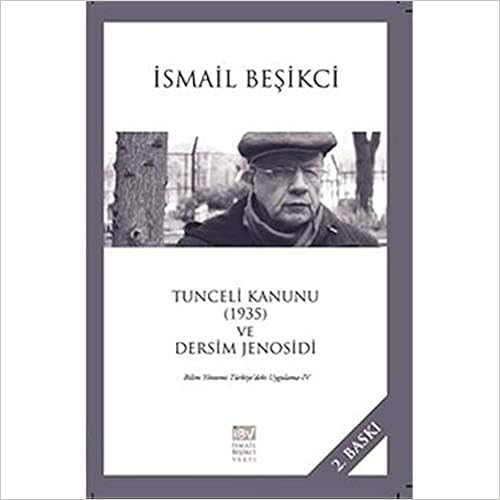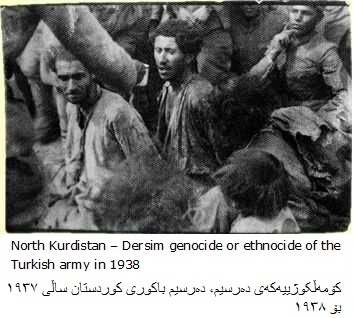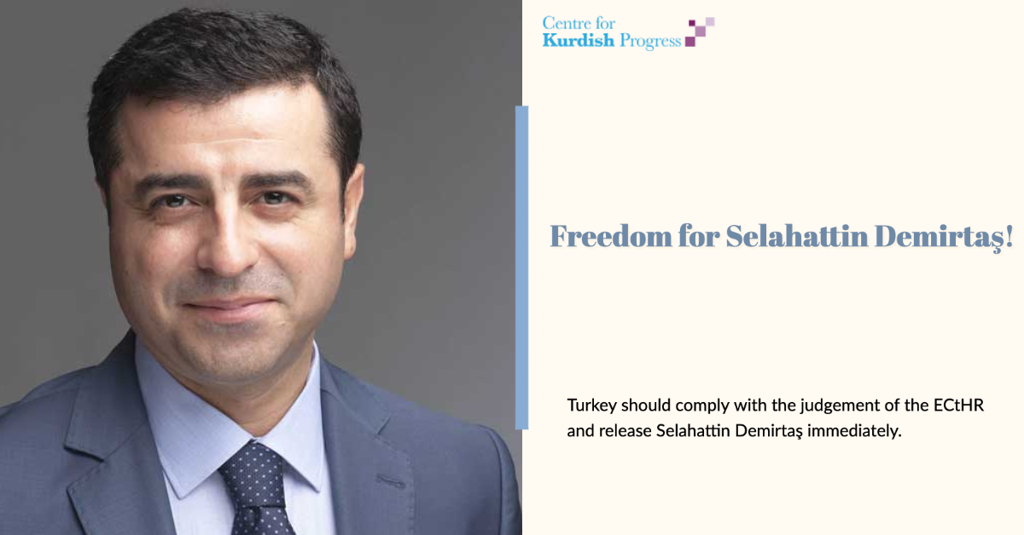The European Court of Human Rights on Tuesday issued a landmark ruling on one of the many incidents of killings and disappearances of Kurdish civilians by Turkish government forces in the early 1990s at the height of the conflict with the armed Kurdistan Workers’ Party (PKK). During that period the army forcibly evacuated and burned thousands of villages, in some cases killing villagers through shelling or aerial bombardment.
The European Court held Turkey responsible for the deaths of 33 people, including women and children, in an airforce bombing raid on the villages of Kuşkonar and Koçağılı on March 26, 1994.
In 1995 Human Rights Watch documented the bombing, which was the subject of an official cover-up, in a report on Turkey’s violations of the laws of war in the southeast in the early 1990s. Human Rights Watch talked to some witnesses of that attack again for a report last year on the importance of securing justice for victims of state-perpetrated killings and disappearances.
In its ruling on Tuesday, the European Court ordered Turkey to pay €2.3 million in damages because of its violations of the right to life and inadequate investigation into the deaths, and took an important and unusual further step, ruling that Turkey should now conduct a full domestic investigation into the case, “with a view to identifying and punishing those responsible.”
This ruling sends a message that there is an obligation under international law for Turkey to ensure justice for the victims and their families, even 20 years later.
But there are wider implications, and for more recent cases. One is the December 28, 2011 Turkish bombing that killed 34 Kurdish civilian men and boys at the Iraqi Kurdistan border as they attempted to return to their villages in the Uludere district of Şırnak, carrying smuggled goods.
Two years on, the case file has been passed from one prosecutor to another, and some families of victims have been fined for illegally crossing the border that night.
The Turkish government should read Tuesday’s ruling as a reminder that while embarking on important investigations into past abuses, it should show similar commitment to properly investigate allegations of human rights violations on its own watch. The European Court has made clear that this isn’t just a choice, but an obligation.
The former Van Gendarmerie General Staff Colonel of Van, Vecihi Halil İyigün, stands accused of having executed two members of the militant Kurdistan Workers’ Party (PKK) and one civilian in the course of an operation in the Çaldıran district of Van (south-eastern Anatolia) although the three men had surrendered already.
A Turkish special forces officer has been arrested for the January 15 death of a 12-year-old Kurdish boy during demonstrations in the town of Cizre in southeastern Turkey, the Dogan News Agency (DHA) reported.
It said the police officer, identified only by the initials M.N.G., was arrested in Ankara for the shooting death of Nihat Kazanhan, who local witnesses have said was killed as police teams were traveling through predominantly-Kurdish Cizre during unrest in the town.
The suspect was arrested after another police officer, who had been detained for the shooting, confessed that his colleague M.N.G. had done the shooting and testified to a cover-up.
Kurdish civilians, including women, children and elderly residents, have been killed during security operations and armed clashes since July 2015 in southeastern Turkey. Local human rights groups have recorded well over 100 civilian deaths and multiple injuries. After unprecedented military deployments to the region in recent days, several cities are under curfew and some of their neighborhoods the scenes of shelling by the military and heavy clashes with armed Kurdish groups. The civilian death toll is likely to rise steeply in the coming days.
ISTANBUL – U.S.-based Human Rights Watch has accused Ankara of blocking international scrutiny over what it calls widespread human rights violations by Turkish security forces in its crackdown on Kurdish rebels.
The Human Rights Watch report focused on fighting between Turkish security forces and Kurdish rebels in Cizre. The town is a center of Kurdish nationalism that has witnessed some of the most intense fighting since last year’s collapse of a peace process with the Kurdish rebel group the PKK.
Human Rights Watch report author Emma Sinclair Webb alleges security forces are covering up abuses.
“There are a huge number of civilians who have been killed during security operations. And there is almost no sign of an investigation into these deaths, and there is an attempt to cover up. We were prevented from visiting families who had lost relatives during the security operations,” she said.
The United Nations wants to send investigators to examine allegations that Turkish forces massacred around 100 civilians in the Kurdish town of Cizre.
It relates to an operation carried out against the PKK, armed Kurdish separatists classified by the EU and the US as terrorists.
Serious allegations have been made about the deaths of civilians at the hands of Turkish security forces in the overwhelmingly Kurdish town of Cizre in south-eastern Turkey earlier this year.
Local people say Turkish security forces killed up to 160 civilians in the town, according to statements made to the BBC and human rights groups.
The worst single incident ended with the deaths of around 100 people who had been sheltering in three cellars.
The UN human rights chief has expressed his concern in unusually strong terms and wants to send in investigators.
The European Court of Human Rights on Tuesday issued a landmark ruling on one of the many incidents of killings and disappearances of Kurdish civilians by Turkish government forces in the early 1990s at the height of the conflict with the armed Kurdistan Workers’ Party (PKK). During that period the army forcibly evacuated and burned thousands of villages, in some cases killing villagers through shelling or aerial bombardment.
Constitutional Court has handed down its ruling regarding the bombing of Kuşkonar and Koçağılı villages in Şırnak 26 years ago. The Court has unanimously concluded that the right to life of 38 deceased people, the wounded and their relatives was violated.
Turkey’s modern history has been marked by impunity for serious human rights abuses highlighted by the state’s systematic failure to hold to account members of the security forces and other public officials for serious violations in the decades following the September 1980 military coup.
In the 1990s, during the armed conflict between the Turkish military and the Kurdistan Workers’ Party (PKK), government military and security forces compelled hundreds of thousands of people to abandon their villages, and carried out enforced disappearances and killings of thousands of civilians. Affected were mainly Kurds in Turkey’s southeastern and eastern provinces. The PKK also committed grave human rights abuses in the course of the conflict. According to official estimates, by 2008 the armed struggle between the military and the PKK had resulted in an estimated 44,000 deaths of military personnel, PKK members, and civilians.
Despite two parliamentary inquiries in the 1990s into the state’s collusion in political assassinations and involvement in lawless activities, no-one in the Turkish state was held accountable during this period for the pattern of gross human rights violations committed by the military and security services. A handful of prosecutions in the domestic courts resulted in the conviction of low level members of the security forces and police, who received nominal, low sentences. But there was no attempt to probe higher level involvement of state officials or to examine whether the violations were a matter of state policy.
There were positive indications of change in 2009, however, when a remarkable trial began in the southeastern city of Diyarbakır of a gendarmerie officer, retired colonel Cemal Temizöz, three former PKK members turned informers, and three members of the “village guard” (local paramilitary forces armed and directed by the gendarmerie). The prosecution accused the defendants of working as a criminal gang involved in the killing and disappearance of twenty people in and around the Cizre district of Şırnak province between 1993 and 1995.
These twenty killings were just a tiny fraction of thousands of unresolved killings and enforced disappearances that took place in the area in this period, as well as many more in other provinces of the region and in some of Turkey’s largest cities. Nonetheless after years of impunity, the investigation and prosecution of these cases marked a significant milestone. Temizöz is the most senior member of the Turkish military ever to stand trial specifically for gross violations of human rights committed in the course of the conflict between the Turkish armed forces and the PKK.
The trial, which started in September 2009, offers an opportunity to examine the obstacles to securing accountability in Turkey’s domestic courts for state-perpetrated killings and disappearances in the mainly Kurdish-populated southeast of the country in the first half of the 1990s. In January 2012, the Commissioner for Human Rights of the Council of Europe described the trial as “a unique opportunity to shed light on a period of systematic human rights abuses in south-east Turkey, which feature prominently in the case-law of the ECtHR [European Court of Human Rights].”
This report examines some of the lessons the Temizöz trial provides about the current obstacles to effective investigation and prosecution of past abuses and highlights some of the reforms required to allow the effective criminal investigation of the hundreds and possibly thousands of similar cases. The report recommends further steps the Turkish government needs to take to combat impunity in Turkey.
Lessons of the Temizöz Trial
The Temizöz trial highlights obstacles to securing justice for victims of human rights abuses in the region in seven key areas:
Limited scope of investigation: The prosecutor failed to explore possible chain of command involvement in the killings beyond Cemal Temizöz, for example by investigating the command responsibility for the alleged crimes among the higher ranking officers in the region.
Non application of witness protection: While Turkish courts have widely used orders to conceal the identity of witnesses in organized crime and terrorism trials, there has so far been little application of the Witness Protection Law in trials relating to crimes committed by the security forces. Application of the Witness Protection Law in the Temizöz trial could have significantly increased the willingness of vulnerable witnesses to participate.
Witnesses retracting their statements: The Temizöz trial has demonstrated how witnesses called to testify because of their “insider” knowledge are liable to retract the initial witness statements they made before prosecutors when they appear before the court. Such witnesses include village guards, former PKK members turned informer, or military personnel and police.
Attempts to intimidate and direct witnesses: Clear evidence emerged in the course of the trial of attempts to interfere with witnesses.
Threats to lawyers: A striking aspect of the trial has been the threatening and insulting behavior in court of defendants towards some of the lawyers acting for the families of the victims. Judges in the case have failed to respond adequately to such behavior.
Length of proceedings: Since the Temizöz trial began in September 2009 there have been 36 hearings (up to June 22, 2012). The excessive duration of trials in Turkey is a long-standing concern. Long trials often lead to excessively prolonged detention for defendants pending verdict, and violations of the right to a fair trial. But lengthy proceedings also have serious implications for witnesses and their protection.
The village guard system: The continued existence of the village guards system by which civilian villagers are armed and paid by the state to join military and counter-terrorism operations alongside the regular security forces is a further social obstacle to efforts to secure accountability for the killings and enforced disappearances and other egregious violations of human rights in the southeast and eastern provinces of Turkey. The fact of some of the defendants in the Temizöz trial are village guards—in effect an irregular army operating within the local society—has contributed to the continuing fear of witnesses and families of victims.
ERBIL, Kurdistan Region—In 1993 and at the peak of daily confrontations between the Turkish military and the Kurdistan Workers Party (PKK) nine members of a Kurdish family were burned to death inside their home in a village near Mus.
In the breathtakingly rugged Turkish province of Hakkari, pristine rivers surge through spectacular mountain gorges and partridges feed beneath tall clusters of white hollyhock. I’m attending the marriage celebration of 24-year-old Baris and his 21-year-old bride, Dilan, in the Kurdish heartland near the borders of Syria, Iran and Iraq. This is not the actual wedding; the civil and religious ceremonies were performed earlier in the week. Not until after this party, though, will the couple spend their first night together as husband and wife. It will be a short celebration by Kurdish standards—barely 36 hours.
A Turkish historian recently discovered the diary of a Turkish soldier who took part in the 1937-38 genocide in the Kurdish-majority province of Dersim, eastern Turkey.
Dersim Jenosidi devletin inkara gücünün yetmediği kadar açık olan bir icraatıdır. Bunun en bariz kanıtı bir bölgeye özgü çıkardıkları ve “Tunceli Kanunu” diye tanımladıkları belgelerdir. Zira buraya özgü çıkarılan kanun diğer katliamların “Jenosid olmadığı” anlamına gelmez.
In 1990 was published there a book in Turkey with a title, that the only party then in Turkey accused of genocide. According to the book, the party a genocide had exported in the Kurdish district of Dersim. The book became at the same time bans and it saw to not for the debate on which the writer and sociologist, Ismail hoped had. Was the first and for a long time the only that in all openness the Turkish official ideology and administration opposite the Kurds criticized. [1] He began in 1969 with its study of the social economic conditions of Turkish Koerdistan with a whole series of increasing polemic writings. He has a large price paid for its moral and intellectual courage; all its books its bans and he remained more than ten year in the prison for its books. The mass slaughters of the book of treated the pacificatie of the rebel scholar Kurdish district of Dersim (these becomes now Tunceli named) in 1937 and 1938. The events its one of the most black pages in history of the republic Turkey. On the book of the crtical sociologist was not reacted or been wrong reproduce to by most historians, as well foreign historians as Turkish. While the campaign against Dersim further went, saw to the Turkish authorities for it that little information to disposition came for the outside world. The diplomatic observanten in Ankara were of it conscious that it large military operations were, but she knew actual not what it precise at the hand was.
On that day, Kurds commemorate the victims of the massacre attempted against the Kurdish province of Dersim in 1937 and 1938. The Turkish armed forces bombed houses, forests and caves, using even poison gas, to kill people indiscriminately in an attempt to exterminate an entire community and its culture.
Young Kurd Kemal Kurkut was shot dead in 2017 in Diyarbakir and while his police officer killer will go unpunished, the photographer who documented the incident faces serious charges.
Turkish soldiers tortured two Kurdish villagers they had detained, throwing them from a helicopter after battering them, eyewitnesses claim.
The repression of the Kurdish political opposition has intensified as Turkey’s authoritarian turn gathered pace since 2015. Since then, the HDP’s district and provincial mayors have been removed from their positions on spurious allegations and thousands of party officials have been arrested and imprisoned.
EXCLUSIVE: Joel David Moore and Rishi Bajaj’s Balcony 9 is teaming with Pop Front Pictures for Stefan vs. ISIS, a feature film that has script from C.C. Kilpatrick and Zack Stentz.
To serve as a mayor from Turkey’s pro-Kurdish political party these days is to fear arrest at any moment and govern in circumstances that hover between stifling and absurd, said Ayhan Bilgen, one of the few who has kept his office during an unrelenting government purge.


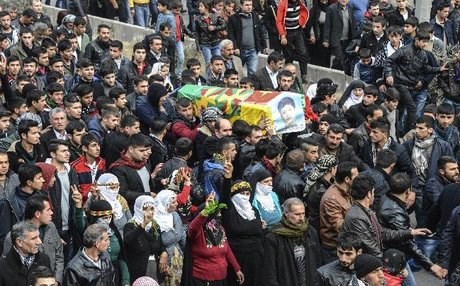
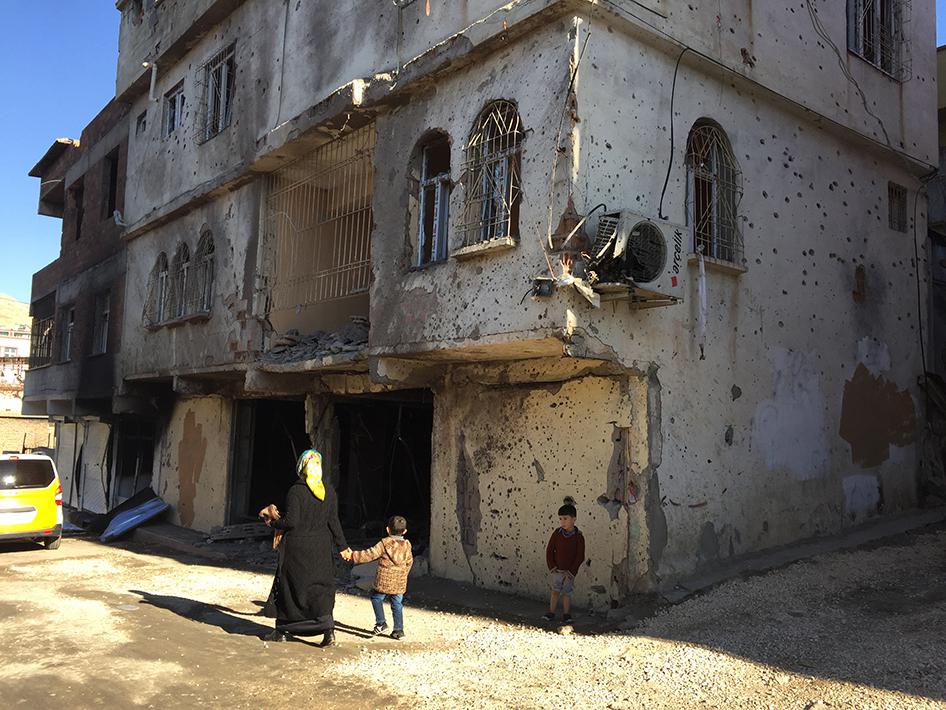

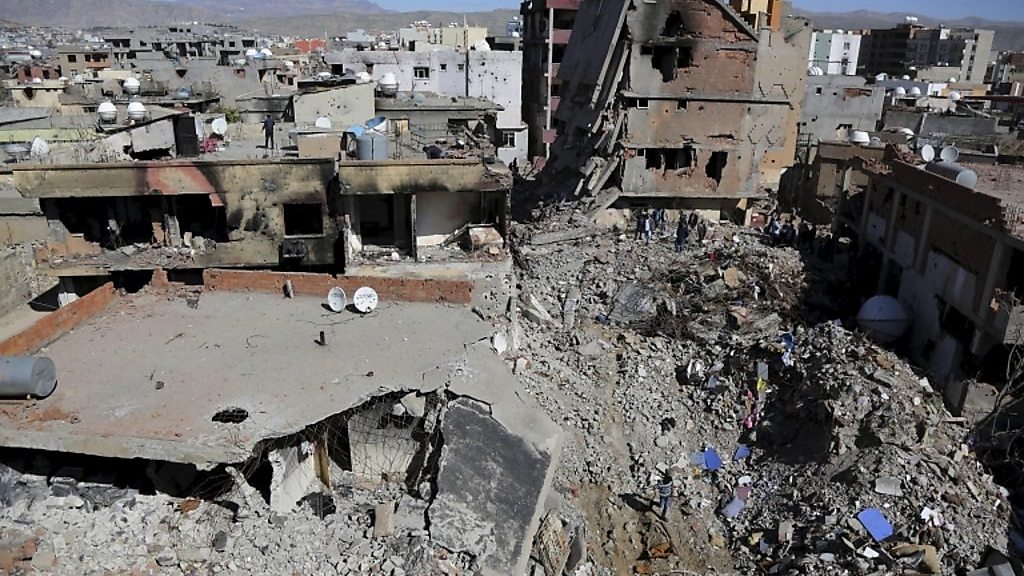
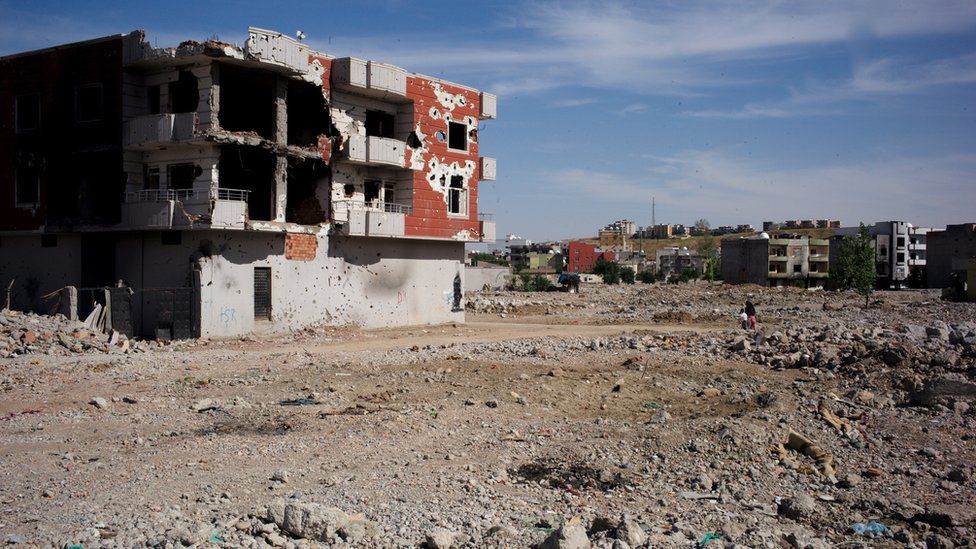

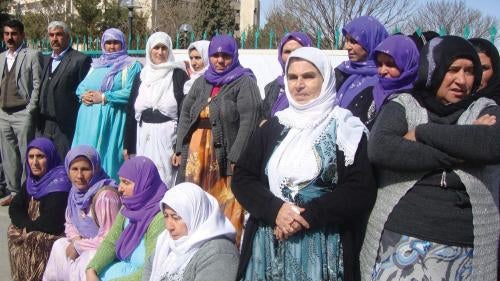

/https://public-media.si-cdn.com/filer/Heritage-Kurds-Semi-Utan-Kurds-631.jpg)

